 |
Section
0401 |
|
April
2014 (Volume
64 - Issue 4) |
|
Our
objective: To increase awareness,
interest, and involvement in Section activities and |
| 10 - Welcome to our New Members | 16 - Recertification | |
| 17 - Unemployed Member Dues | ||
| 18 - Feedback/Advertising Rates |
1.
Next
Event
Date Wednesday, April 16, 2014 Time 6:00 PM Place Counterfeit
Parts in the Aircraft Industry Mr. Eric Hosking Senior
Fellow - Quality **************************************
Please join us on April 16th to hear our guest speaker present the topic of Counterfeit Parts in the Aircraft Industry. |
2.
Ad
/
Publicité
|
||||||||||||||||||||||||||
|
The
presentation will cover the
emerging regulatory environment concerning counterfeiting and fraud, as
it relates to contracting with the US government. It will talk to
factors that encourage fraudulent activity, including counterfeiting.
It will cover the standards available that address counterfeit and/or
fraud avoidance and mitigation, and the key steps companies can take to
address fraud. Finally, it will touch on specific instances of
counterfeit and fraud within and outside the aerospace world and the
business impact they have.
BIO: Eric Hosking is a 35-year veteran of the Aerospace industry, having worked at United Technologies subsidiary Pratt and Whitney Canada for 20 years in many Engineering disciplines, 5 years in Operations and Engineering Module Center management, and 10 years in Quality. He is currently PWC’s Senior Fellow - Quality. He has taken a leadership role in UTC’s response to emerging legislation affecting counterfeit and fraud avoidance in government contracting. This follows from more than 5 years of managing counterfeit and fraud cases in PWC’s supply chain. Eric is also active in the International Aerospace Quality Group which operates under the umbrella of the SAE. He has contributed to the IAQG Supply Chain Management Handbook in the areas of sub-tier management, APQP implementation and Counterfeit avoidance. He is also active on the SAE G21 Counterfeit Material Committee. Eric graduated from the University of Toronto with a BApSc in Mechanical Engineering and from McGill University with an MBA. He has been a Transport Canada all-engine design approval appointee and a licensed pilot. He is a Shainin Journeyman and an ASQ CQE and CSSBB. He is also treasurer of ASQ Section 401. Outside of his professional life, Eric has been a member of the Alpine Club of Canada for over 25 years and a supporter of the Trans Canada Trail development for over 15 years. He has served as a volunteer for the Club des Petits Déjeuners for several years and is currently a mentor, at Louis Joseph Papineau High School, to a team competing in the FIRST Robotics Competition. ******************************************
Cost
ASQ Members ($40) Non-Members ($50) For STUDENT MEMBERS ONLY ($30) NOTE: For students wanting to get to the Sheraton Hotel, you can easily take the STM Express City Bus 747 which will drop you off at the Pierre Elliott Trudeau airport. After which, you may take the Sheraton's free shuttle to get to the hotel. Click HERE for more details. After the meeting, an ASQ member will often be available to drop off a student at a nearby bus or metro station. Bring
your business cards and be ready to
network. To
register for any event or for more information on events please
contact:
Mr. Sukhvinder Jutla Tel: (450) 647-8092 E-mail: Sukhvinder.Jutla@pwc.ca 4. The Editor's Corner
My first contributions to the ASQ Montreal Section 401 newsletter occurred back in early 2010. At the time, I had written about the Toyota Corporation and how they used tried and true Quality practices to try and resolve their accelerator and ABS system issues. Some months later, the British Petroleum oil disaster in the Gulf of Mexico had me asking whether failure mode effects analysis had been conducted on the oil wells. It seemed easy for me to relate these industry "mishaps" to something within the Quality field, and hopefully make my point, and perhaps stimulate some debate. Fast forward 4 years and the story of Malaysian Airlines Flight 370 has me asking . . . "What must those poor families and friends of all those passengers and crew members be going through?" As someone who started his Quality career in the Aerospace industry (and who is now back in it after being away for 7 years), I think I'll always feel an extra bit of pang when something of a tragic nature occurs involving an airplane. I've signed enough certificates of conformance in my time to know that it is not a frivolous act (despite all those who will say "it needs to ship now!!"), and that a small error along the way that was not caught can lead to bigger things later. At the time of writing, Flight A370 had still not been found after going missing on March 8, 2014. Perhaps when you do read this, the mystery of what happened to this flight will have been solved. But unless the flight is found safe and sound in one piece, with the 227 passengers and 12 crew members alive and well, my question above will most likely not change. And it is a question that has nothing to do with "How could Quality have prevented this tragedy?" or "See how Quality helps make things better". It has to do with hoping that anyone related to or knowing somebody on that flight will be able to find some form of peace in the coming times. *********************************************************
Any feedback? Click on the link in the bottom right corner of this section and let me know. Thanks. |
|||||||||||||||||||||||||||
5.
A Word
from
your Section Chair
Hello everyone. There has been some discussion on the executive committee above staging an event on a Friday night and a Saturday morning. The 2 main questions coming out of the discussion were: Does the Friday/Saturday format work versus taking a full weekday or a Saturday, and what will be presented, standards, several different subjects or should the event have a theme? Our focus has always been to try and present interesting and relevant topics, value for your membership dollars. This not a project we can do blind, so we need membership input on the above points. Please contact anyone on the executive, send an e-mail, leave a message, we would love to hear from you. |
|||||||||||||||||||||||||||
6.
Had
You Come
to the
Last Event
By
Eric Stern, ASQ Senior Member, CQA, Publicity co-chair
 Had you come . . . Continuous Improvement George
Laszlo, a consultant with experience in a large variety of industries
and organizations presented “Continuous
Improvement”. It was one of those events when the personal
experience skillfully presented is, in my mind, more valuable than some
of the best theories. I also have a preference for the interactive
opportunities to drill down to the questions from the audience; it
gives me an opportunity to ask my own questions, an opportunity you
missed if you only read my words here.
The reasons for improvement actions were summed in 3 varieties: avoid disaster down the road, brighter future ahead, and “Rolling Stones don’t gather moss”. The pre-requisites for planned improvement that he mentioned included tangible commitment from management, a culture that facilitates dealing with changes and a rigorous cost and investment analysis. The benefits of planned improvement include increased levels of efficiency and quality, and excellence in thinking and work methods. In planning for improvement, it is important to align with organizational priorities, coordinate improvement projects, leverage synergy without sub-optimization, plan for using metrics and use facts for making decisions. Not to forget, it is important to review the lessons learned and analyze and evaluate outcomes in order to add to the organizational IQ. The key sequence of an improvement project involve the identification of the opportunities and problems, work on the process improvements, the training and hiring the people needed, and only at the end consider IT opportunities. Analysis of the improvement options needs to be concluded with an effective approval process. Improvement projects face invariably resistance to change. It is human nature to look for stability. Common in change situations is the fear. Some sources of fear where mentioned: the unusual, the novelty, failure, ridicule, and getting fired. Often these are stronger than the attraction of the promised benefits. Some typical excuses to hide the real reasons for resisting include statements such as: we are different, busy, impractical, we already know it, we need results right now, we already tried it. It is therefore important to quantify the benefits in dollars, man-hours, employee satisfaction; review the risks of changing versus the risks of not changing. To make change effective, it is important to decide who will be the change agent, the vision, direction, “from what to what”, the milestones, methods, and the monitoring tools. It is important to prevent demotivation, to organize teamwork and to ensure sufficient training. Many of the stories were interesting: how GE stopped activities in domains in which it could not have world leadership, how the time needed to “sharpen the saw” is critical in achieving success, how clarity about “what’s in it for me” contributes to the engagement of individuals, how important it is to ensure that the meaning of words is clarified for all involved. Answering the question about how a consultant can choose organizations likely to succeed in improvement projects, Mr. Laszlo suggested two important criteria: the body language of the leader who conveys confidence, and the diversity of the opinions of the team members indicating the availability of multiple sources of ideas. I think some people are better than others interpreting body language. Remember how George W. Bush said that he looked in the eyes of Vladimir Putin and could trust him? **************************************************
Eric Stern, CQA, senior member, publicity co-chair, developmental coach and consultant at Expertech CMSC, expressing his own opinions (ericst@iseffective.com). For networking with local quality professionals explore these groups: http://tech.groups.yahoo.com/group/Quality_Montreal/ http://www.linkedin.com/groups?gid=90170 |
|||||||||||||||||||||||||||
7. Voice of the Customer
Quality Management: Fad, Pendulum, Flywheel, or... ? Fads come and go depending on popularity. Pendulums swing back when having gone too far in one direction in order to keep things in some form of natural balance. Flywheels are hard to get going but, once they start gaining momentum, they keep going with less effort than it took to start them off in the first place. However, continued effort is still required to keep them going. So what is Quality Management? - A fad that's adopted when popular and marketable, and that can just as easily be dropped when no longer generating the impact being sought? - A pendulum that gets all kinds of attention when there's a need (customer issues, high costs of non-quality, etc.), but then gets put aside as soon as it's felt too much effort is going into what no longer seems to be as burning an issue, i.e. until the next time it flares up again? - A flywheel that requires serious vision, commitment, and rigor to keep it going, even after the benefits have started showing? - Or something else? No doubt many of you have seen all three outcomes and perhaps even others you feel are significantly different than the ones I've suggested (I'd be curious to have your feedback on the latter). As far as I'm concerned, Quality Management, its value, and its lessons are very well understood. However, the commitment and rigor to implement and maintain it can always be challenged when other priorities and circumstances fall into play. External and internal factors will always be there, but I remain convinced that management and personal commitment hold the key between it being just a fad or a temporary swing of the pendulum vs. it being the slow but steady and continuous turning of the flywheel, something we call Continuous Improvement. For those who thought of it while reading this article, yes, I was somewhat influenced by James C. Collins' book "Good to Great: Why Some Companies Make the Leap... and Others Don't". To me, Quality Management is just part of that equation. 8.
2014-15 Planned Events
Date, time, and location will be confirmed as we progress into the year. Most events are planned for Wednesday evenings and are held at the Sheraton Montreal Airport Hotel. Watch the Newsletter and our web site for further details.
Date Event |
|||||||||||||||||||||||||||
|
To register for any event of for more information on events please contact: Sukhvinder Jutla at (450) 647-8092 or e-mail at Sukhvinder.Jutla@pwc.ca. 9. The
Interview Corner
This month, we are presenting an interview with Gordon Ayotte, CQE, CQM, CSSBB. CONTINUOUS IMPROVEMENT AND SIX SIGMA IN TOBACCO MANUFACTURING An example of successful implementation
of Six Sigma approach
in Continuous Improvement efforts Gordon Ayotte is an extremely experienced Quality Assurance Manager, who in his career has dealt with a variety of processes and Quality Improvement approaches. He obtained his experience being a leader and a manager; acting as a champion and a facilitator in order to develop and implement strategies to deliver quality products and services, while ensuring all the CFIA regulations are met by applying Lean Six Sigma principles. 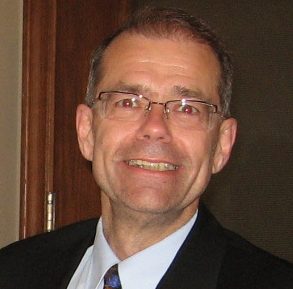 KOSTYA: Could you please tell our readers about your background? GORDON: I was born in St. Leonard, New Brunswick. After I graduated from high school, I studied Chemical Engineering at the University of New Brunswick Fredericton. I received my Bachelor Degree in Chemical Engineering. After graduating, I moved to Montreal and I began working for Imperial Tobacco as a Production Supervisor. KOSTYA: How many people did you supervise? GORDON: At the time, I supervised approximately 15 -17 people. This was an entry level position and we were learning how to manage people; we dealt with production planning, irrigation, and the syndicate convention. I supervised “The Primary”; it is the part where you actually make the “rag” of the cigarettes. It is the process where you put the tobacco in the bundles and let it steam. That is the area where I worked. KOSTYA: How many years did you worked at Imperial? GORDON: I worked there for 15 years. I worked for 5 years in Montreal, 5 in Ontario and 5 years in Hong Kong. KOSTYA: Please tell us more about the evolution of your career. GORDON: In Montreal, I was promoted from Production Supervisor to Process Coordinator. That is how I moved to Quality and Continuous Improvement. After, I was transferred to Ontario. This is where we actually get the tobacco from the farm. So this happens before the Primary Operation. We are getting the commodity from the farmer. After Montreal, I was transferred to St.Thomas, Ontario, where I got promoted to Quality Assurance Manager. Eventually from there, I was recruited by British American Tobacco to go to China. I went from Entry Level Production Supervisor, Process Coordinator to Quality Assurance Manager. Those are my career steps. KOSTYA: In which company did you gain the most valuable Continuous Improvement experience? GORDON: I received the most valuable experience with Imperial Tobacco. I was there for fifteen years. I mean, I traveled from Montreal to Ontario to build new lines, new plants. Then I moved to Asia (Hong Kong), I also went to India, Bangladesh. Of course, I was mainly in China. KOSTYA: What problems did you encounter in your work experience and why did you decide that Continuous Improvement was the best approach to overcome those problems or to achieve maximal benefits? GORDON: I don’t think I decided anything. When you’re in Quality, you run into those problems all the time. You try to help and get things done with those variations. KOSTYA: Did you establish or develop any specific processes? GORDON: Of course. Some processes you establish and some you adapt. KOSTYA: What approaches did you use in resolving the problems that you met or tried to prevent? GORDON: I have an example. Let’s say I am in the tobacco business and advertise my products. Suppose that we are running out of cigarettes that we sell at the convenience store. That is not a good situation for us, thus you want to prevent this. Also, suppose at that time that I am in Asia. We make the cigarettes here in Asia and we have to ship the product by boat or by air, and we have to pay a duty. All of this is lengthy. Initially, this process could take up to seventeen days. By the time that we were done, we were down to 48 hours. So this is cycle time reduction. KOSTYA: How did you implement the Continuous Improvement approach? GORDON: It is the Buy In from the boss of the boss. It is the Buy In of the involved people. Of course, if you are dealing with a factory, it’s the plant manager. I implemented the Continuous Improvement approach by using the Buy In. The Buy In means receiving consensus from people. I made the people involved by convincing them. I had to tell them how they would benefit from this. KOSTYA: What was your role? GORDON: Well, basically, as Quality Assurance Manager, you lead these projects. KOSTYA: Did you often use Statistical Tools? GORDON: Yes. I used “Pure” Six Sigma. The meaning of “Pure” is calculating the data statistically. You need to look at the long term variation or the long term Z and the short term Z. The long term Z determines what can be done, for example, across a week for four lines. It is compared to what your best operator working on one machine with the best raw material can do for one run. That is the best that you can do. Even if you keep gathering data from the same operator working with the best machine and the best material, the variation is going to increase over the time. Imagine what data you get if you are going to spread this to all operators and to all materials. This is how you gather data to calculate Z-score for DMAIC Six Sigma projects. KOSTYA: Did you introduce these tools yourself or they were introduced in the company before? GORDON: I developed the implementation further. They were not introduced in the company before. KOSTYA: Do you remember the challenges you met? How did you overcome them? GORDON: All the challenges that I have met were usually because I did not follow up enough. I also had communication problems with my Asian partners. When I was in Asia, there were communication problems and sometimes things were lost in translation. KOSTYA: Did you meet any resistance in your Quality Improvement efforts? GORDON: I did. People would ask me why they should do something, so I had to explain. I would ask them to be cooperative and patient. I had to explain to my employees why change is needed; it helps me to overcome resistance. I tell them what they have to do or why something is needed to be done. The procedure has to be followed. We have to have respect for our customers. In the end, it should be that we don’t lose customers. KOSTYA: Did you try to prevent or plan how to avoid these situations? GORDON: I did try to prevent, but it is sometimes difficult. KOSTYA: Tell us more about the companies where you worked? GORDON: After I worked for British American Tobacco for fifteen years, I worked for five years at Diageo. It is a company that makes quality beverages. I worked there as a QA Manager. Then they closed the Quebec Factory. Afterwards I worked for one year at Benjamin Moore, a paint factory. I worked there as a Quality Manager. KOSTYA: What are you trying to implement there? GORDON: I am trying to implement methods such as Customer Interface, Supplier Interface, and our own processes. We look over our methods to see what works and what does not. We look at areas where we need to improve. We locate the problem and see how we can make the necessary adjustments and improvements. KOSTYA: What are your certifications? GORDON: I have three certifications. From the American Society for Quality, I have Black Belt in Six Sigma. I also have CQE – Certified Quality Engineer as well as CQM - Certified Quality Manager. I took the training course for the Six Sigma. For CQE, I took a course from David Tozer. KOSTYA: Would you recommend other QA Managers to obtain Six Sigma Black Belt or CQE or CQM? GORDON: Yes, but depending where they work, they have to change the value for that. There are many constraints that people deal with so it’s hard to tell. It is good to deepen the knowledge. KOSTYA: The people in China and Japan, did they have certifications? GORDON: In those days, no. I was there in the late 90s, 2000. It is not very widespread. KOSTYA: What are your future plans? GORDON: I will continue my career in Continuous Improvement. |
|||||||||||||||||||||||||||
10.
Welcome
to our New Members
MARCH
2014
Naif Alenazi Juan P. Carrion Weilun Chang Louise Desilets Veronique Laflamme Jean-Marc Legentil Antonella A. Maggio Elaine Moreau Hassan Mukhtar Venkata Subramanian Narasimhan Karine Paradis |
|||||||||||||||||||||||||||
11.
Site
Members
ASQ Montreal Section thanks our Site Members: |
|||||||||||||||||||||||||||
12.
Other
ASQ
Events
|
|||||||||||||||||||||||||||
13. ASQ NewsCall
for Nominations - Automotive Division Member
Leader LinkedIn - Win $25 in ASQ Bucks
|
|||||||||||||||||||||||||||
14.
ASQ
Montreal Section Education Program 2013-2014
By
David
Tozer,
Ph.D., ASQ CQE and SSBB, Education & Audit Chair Having ASQ certification gives you an edge in the market and can significantly increase your income. ASQ Certification often leads to higher paying employment. The money invested in education and certification increases chances of finding employment quickly in the down sizing environment we live in. People who take the section sponsored refresher courses, and spend at least twice as much time as spent in the classroom on self study, have an 80%, or better, chance of passing the examination on the first attempt. Certified Quality Engineer Topics include: quality concepts, cost of quality, human resources, team formation and group dynamics, inspection, metrology, sampling, reliability, quality standards, quality audit, statistics, design of experiments, process improvement, liability, and modern management methods for improving quality. Certified Six Sigma Black Belt Topics include: quality concepts, cost of quality, enterprise wide deployment, business process management, project management, team formation and group dynamics, define, measure, analyze, improve, control, lean enterprise, statistics, design of experiments, and design for six sigma. Certified Six Sigma Green Belt Topics include: quality concepts, cost of quality, enterprise wide deployment, business process management, project management, team formation and group dynamics, define, measure, analyze, improve, control, and statistics. Certified Manager of Quality/Organizational Excellence Topics include: quality concepts, quality planning, customer focus, quality standards, project management, cost of quality, team formation and group dynamics, human resources and improvement.
Certified
Quality Auditor Topics
include: quality concepts,
team
formation and group dynamics, management responsibility, audit
objectives, audit preparation, audit conduct, audit reporting,
sampling, and basic statistics.
Certified Quality Inspector Topics include: quality concepts, team formation and group dynamics, geometry, metrology, reading drawings, mechanical processes, statistical process control, inspection, and sampling. Calendar and Registration Form Questions? In house courses, etc.: David Tozer: (514) 694-2830, davidtozer@qualitiqua.com
|
|||||||||||||||||||||||||||
15.
Executive
Committee Meetings & Officers
Section Executive
Committee
(Leadership Team) Meetings are held at different locations, starting at
6 PM. The next regular meeting is tentatively scheduled for : May
7, 2014 Consult the List of Your Executive
for
2013-14 here |
|||||||||||||||||||||||||||
16. RecertificationIs Your Recertification Due?Look at your wallet card to see when your present certification is due to expire. If it says June 31, 2013 you are in time, you have plus or minus six months from that date to submit it. Get your journal, with supporting objective evidence (you should know what that is) to me before the end of December 2014. If it says that you were due in December 2013 then you have until the end of June 2014 to submit your journal to me or it will lapse. If you require assistance then please contact me at the email address shown on the last line below. Maybe you’ve decided not to recertify because (a) you are unemployed, (b) no longer in the quality field or perhaps, (c ) your employer no longer will pay for it? Think about this, your certification belongs to you and no one else. Your name is on it and no one else’s. Remember how hard you had to study for it? If you let it lapse you must rewrite the exam. It is portable and you can bring the recognition to your next company. Do you know where you will be employed in a year or so? Well congratulations if you do because most of us don’t and it could come in handy then, it sure won’t hinder you to retain it. The cost of $59 USD to renew one certification is much less than it would to rewrite. If you are unemployed, then contact ASQ directly at 1-800-248-1946. Ask for “Recertification” then explain your unemployment situation to them. You may be able to have your due date extended. But at $59.00 that is not really that much if it will help land your next job? If you are a member of Section 0401 Montreal, then contact Norman Dickinson at certification@asqmontreal.qc.ca or at 514-334-6102 to find out where to send your journal. If you are NOT a member of Section 401, then contact ASQ directly at 1-800-248-1946. 17.
Unemployed Member Dues
Unemployed ASQ members receive a discount on their membership dues based on consecutive years of membership.
Eligibility Criteria
Benefits
NOTE: The following links require that you be logged into your account before you try to activate them. Download the ASQ Unemployment Program
Application
PDF (105 KB) |
|||||||||||||||||||||||||||
18.
Feedback
Please send us your comments about the ASQ Montreal Section 0401 E-Newsletter (topics, layout, length, etc.). Do you want to contribute an article (English or French) or a good idea? Contact us by e-mail. |
|
||||||||||||||||||||||||||
Pass
it on
We invite you to forward this Newsletter to friends and colleagues who may be interested. |
|||||||||||||||||||||||||||
|
The
ASQ
Montreal
Section 0401 Newsletter is prepared by and published for its members. How to
Opt Out. This
e-mail
is being sent in the course of normal Montreal Section
business
to the e-mail address of record. We are not responsible for forwarded
e-mails. If you no longer wish to receive e-mail communications from
the Montreal Section (your section) of ASQ, please visit your ASQ
account to unsubscribe or
reply to this message, indicating Opt
Out in the
e-mail body
and in the title. |
|||||||||||||||||||||||||||
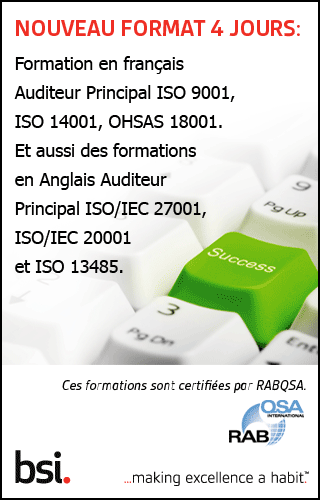
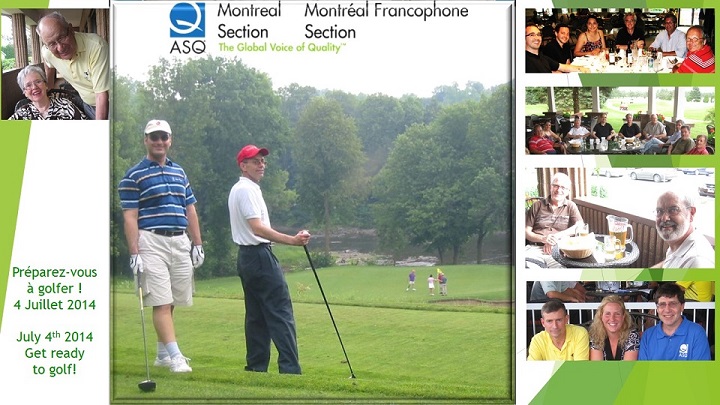
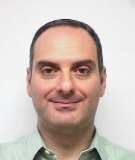
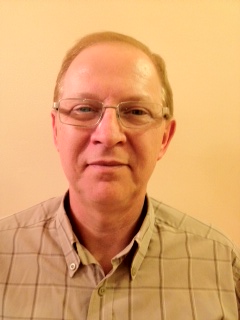
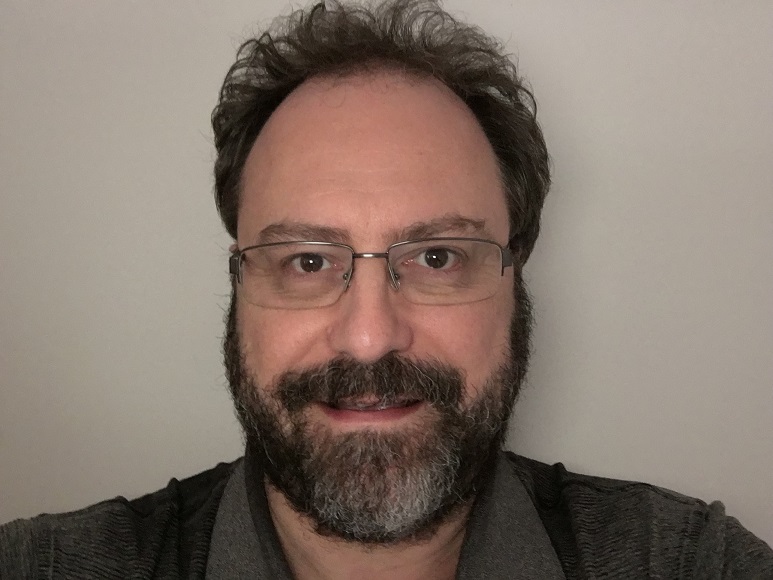
 By
Sukhvinder S. Jutla,
2013-14 Program
Chair
By
Sukhvinder S. Jutla,
2013-14 Program
Chair